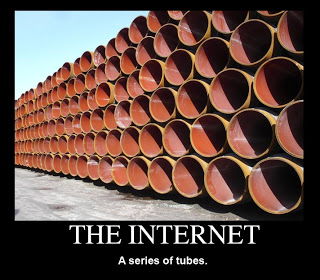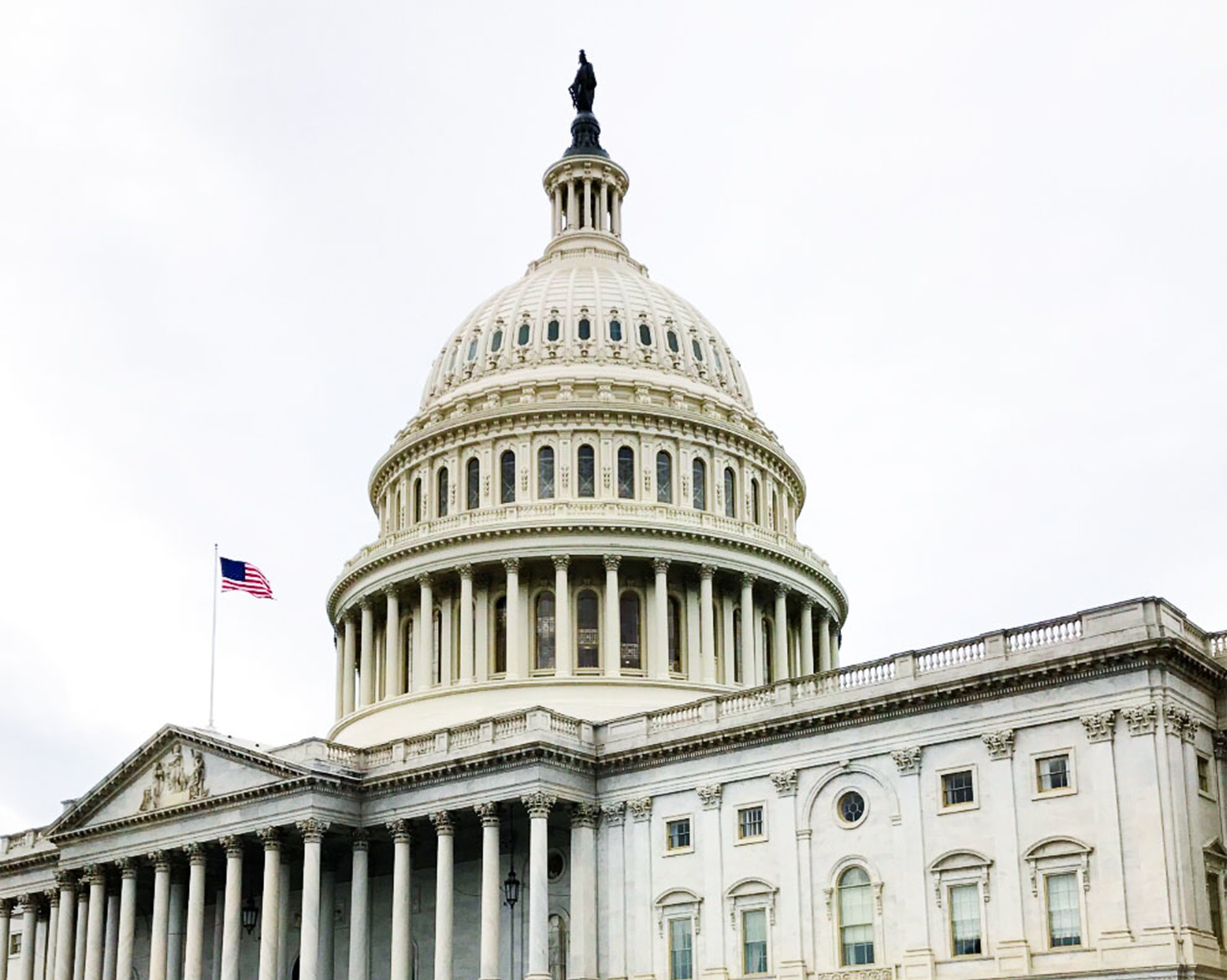This article was published earlier today in The Hill. The U.S. Congress – the place where former Alaska Senator Ted Stevens once declared the World Wide Web “a series of tubes” – is not known for technological erudition, so it has wisely kept its hands off the Internet, the greatest economy-boosting innovation of our lives. “The last thing we need,” Rep. Cliff Stearns astutely observed just last week, “is a Government takeover of the Internet.”
 I wish he’d tell that to Rep. Rick Boucher – his would-be partner on a still-unseen bill that promises to erode the burgeoning field of e-commerce, harm ad-supported news and entertainment media, and destroy the tens of thousands of small businesses in all 50 states that have come to depend on interactive technologies for marketing, retailing, and customer connectivity.
I wish he’d tell that to Rep. Rick Boucher – his would-be partner on a still-unseen bill that promises to erode the burgeoning field of e-commerce, harm ad-supported news and entertainment media, and destroy the tens of thousands of small businesses in all 50 states that have come to depend on interactive technologies for marketing, retailing, and customer connectivity.
Writing last Tuesday in The Hill, Mr. Boucher declared his intent to introduce legislation to provide “some baseline protections in the online space” aimed at “protecting consumer privacy.” But within this seemingly laudable proclamation lies either a misunderstanding of how interactive media actually work – or an active desire to hinder the medium’s growth, and jeopardize the 3.1 million jobs and 2.1 percent of U.S. GDP that depend on it.
Advertising is the engine of the consumer economy, and fundamentally the only way American shoppers can compare prices, discover products, and learn about new stores and sales in their neighborhood – and the sole way businesses can get this information to them. Yet the Congressman wants to legislate its elimination. “If someone does not want a website he visits to use information it collects to deliver ads to him,” he writes, “he should be able to opt out of that use.” Worse yet, Rep. Boucher says “if a website wants to provide information to an unrelated third party, it should procure that Internet user’s affirmative opt-in consent.”
 But the Internet is built on information – most of it managed by “third parties.” Indeed, about 90 percent of online display advertising is delivered by third-party ad-serving companies. Third-party management of the information units called “cookies” is what limits the volume of irrelevant advertising a consumer receives online. Rep. Boucher might as well title his bill “The Spam Preservation Act of 2010.”
But the Internet is built on information – most of it managed by “third parties.” Indeed, about 90 percent of online display advertising is delivered by third-party ad-serving companies. Third-party management of the information units called “cookies” is what limits the volume of irrelevant advertising a consumer receives online. Rep. Boucher might as well title his bill “The Spam Preservation Act of 2010.”
But Rep. Boucher (shown left) isn’t putting only Internet infrastructure at risk. His most disturbing proposal is to place the burden for consumer privacy protections on individual Web sites - on the local newspaper’s dot-com affiliate, the cable network’s online feed, and the solo blogger alike. His legislation would force all publishers to implement cumbersome and expensive means to stop ad-distribution to any consumer who demands it, and shatter the systems that enable publishers to provide advertisers reliable measures of their circulation and advertising delivery – the currency that enables publishers to get paid for their work.
Why does Rep. Boucher want to imprison the Internet economy? He says his proposal will “encourage greater levels of general Internet usage and e-commerce.” But government intervention hardly seems necessary, given the enormous growth both have seen. A recent University of Southern California study found that in 2008, the average American spent 17 hours per week online, up from 15.3 hours in 2007 and only 9.4 hours in 2001. What were they doing? Among other things, they were shopping. Online retail sales during the recession-soaked 2009 holiday season increased 5 percent from 2008, with consumers spending $27 billion more than last year.
Everyone in this diverse, mushrooming industry would agree with Rep. Boucher that risks to data security and identity theft must be dealt with forcefully. But to conflate these legitimate dangers with the broader, fuzzier notion of “consumer privacy” is misguided and ultimately more dangerous than the original threat.
Our industry takes consumer privacy very seriously; after all, without the consumer – and consumer trust – there is no internet economy. This is why industry has moved aggressively to provide greater protections. In July, a coalition of five major trade associations, representing thousands of advertisers, marketers and publishers, released comprehensive principles for industry self-regulation, which would create strong enforcement of consumer privacy protections under the auspices of the Better Business Bureau. These principles embrace and expand on many of the concerns raised by consumer groups and by the Federal Trade Commission (whose officials have publically praised the coalition’s achievements).
This increasingly vigorous system of self-regulation and education is working. Even the Center for Democracy and Technology, a consumer advocacy group, in a tally of thousands of complaints filed with states attorneys general over Internet-related abuses in 2006-07, found only one case relating to privacy – a case already covered by existing law.
Rep. Boucher should take the advice of his putative co-author, Congressman Stearns. The Florida Republican says government regulatory “interference should be undertaken only where there is weighty and extensive evidence of abuse.” We could not agree more.



